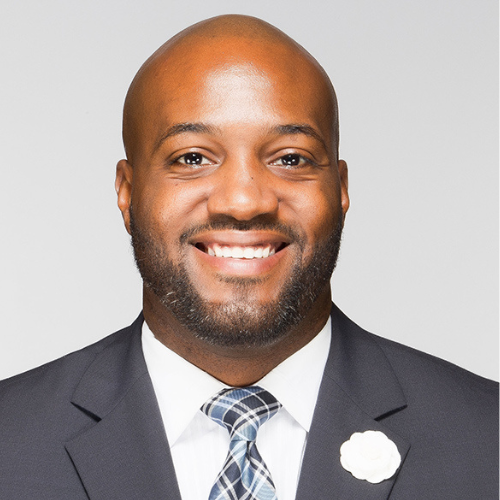Commentary on 2 Samuel 18:5-9, 15, 31-33
By this point in David’s story, I’ve developed quite a bit of suspicion in the narrative surrounding David and the intentions of his actions. I don’t mean to initiate a conversation about the accuracy of the Biblical text so much as to recognize that both the telling of this story and what is going on in David’s mind is complicated.
The lection for today selects very specific passages from the broader story of the failure of Absalom’s rebellion that focus our attention on David’s grief and his seeming lack of involvement in his own son’s death. But as with everything concerning David it is much more complicated than that.
When David gives instructions that Absalom should be dealt with gently, the narrator makes sure to note that all the people heard when the King gave those orders. David wanted to make sure that everyone heard him make this request. These directions were so loud and clear that no one could miss them. But by including this line for the readers of the text, we as readers also could not miss them.
Is it possible that the narrator wanted to make sure that any original readers who were supporters of Absalom were informed that David wanted to treat him kindly in order to secure their support? Maybe in making the pronouncement David is trying to save face with his own people who might judge him for going against his son or killing his son and the narrator wants the same thing for readers? Maybe it is as simple as David loves his child with his whole heart and despite all of the drama that they’ve been through at this point he simply does not want to see him die? Maybe David knows that Absalom is worth more to him alive than he is dead? And maybe it is a little bit of all of that. It’s complicated.
David is serving multiple roles. He is not only a shrewd king but he is a grieving father. There are personal emotions and national responsibilities living in tension. There are echoes here of many difficult decisions that David had to make throughout his rule, but for me David’s bringing the Ark of the Covenant and dancing before said Ark in 2 Samuel 6 come immediately to mind. Even that was complicated. Yes, he was happy that the ark came to his capital, and as we often remember he worshipped with reckless abandon. But it is hard to miss how politically beneficial bringing the ark was for further solidifying his rule.
David had a way of doing that which brought glory to God and to himself. He’s complicated. But David is not alone in that. The truth of our actions are often messy. A sermon from this passage might do well to avoid the “simple” narrative that might be formed around David’s grief and lack of involvement in Absalom’s death and instead delve into the complicated notions of desire, strategy, ambition, and power in David’s actions. What do we do when our motivations aren’t pure? Are our motivations ever pure? How might David’s complicated legacy inspire us and help us guard against the struggles that David faced?
Collateral damage
The last section of this passage is one of the most gripping in all of scripture. It seems that a sermon from this passage must do the work of helping the hearers envision the horror and sheer grief that consumes David as he gets the word that Absalom has died. The reversal and contrast in emotions is palpable as the Cushite comes with the “good news” that Absalom has been killed. No longer referring to him as the young man Absalom, David cries out “My Son, My Son” and wishes that he had died in his place. That cry holds with it all of the pain and agony that a father would have at the loss of his son, but in that cry must also lie the guilt that comes from knowing the part he played in his son’s demise.
Not merely the fact that they were at war with one another but going further back one could trace the origins of Absalom’s demise to David’s abuse and subsequent marriage of Bathsheba and his manslaughter of Uriah. The punishment that Nathan said would always be with his family proved to be accurate, as no order to treat his son Absalom gently could save him from death. This is not quite the end of David’s story but this encounter does serve as a kind of climax to David’s family drama. I can’t help but think that David’s cries for his son include a recognition of all that his sin and subsequent punishment has put his family and his country through.
David’s actions have had collateral damage of epic proportions and this pain serves as a grave warning for any that have power and influence. Displaying the kind of self-centeredness that David displayed earlier in his rule is quite the temptation to anyone in power, and sermons from this passage might also call us to a broad consideration of our actions. One need not be a king or have that level of influence to cause great harm with their selfishness and shortsightedness.
Finally, though they were performing their duty, and following orders as soldiers were trained to do, the way this lectionary highlights who caused the violence against Absalom is worth noting. Joab, both in this larger narrative and earlier in David’s story, was often used to do David’s dirty work. Joab provided cover for David and it was Joab’s leadership and actions that allowed David to remain in the background. Joab was the one that received David’s earlier letter about thrusting Uriah to the frontlines in order to die. And while Joab’s role is conspicuously missing from the selected passages, the ten men that ultimately killed Absalom bore Joab’s armor. David’s machinations not only caused harm to others but it forced those around him to be the purveyors of harm themselves.


August 8, 2021